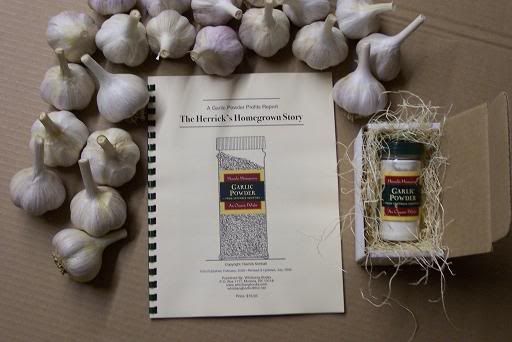I have attended Pentecostal churches, Methodist churches and for a couple of years, way in the past, Marlene and I were involved in a church that focused heavily on deliverance ministry. But for most of my churchgoing days I’ve attended an independent Baptist church.
Some who have read my book, Writings of a Deliberate Agrarian, and this blog have mistakenly assumed that I attend a Reformed church. It is understandable. My faith has been fed and my beliefs more clearly defined in recent years by several Reformed Christians, starting with Doug Phillips who I was, like so many others, introduced to through his speaking at homeschool conventions.
Before long I was reading the writings of Reformed Christians like Rousas Rushdoony, George Grant, Gary DeMar, and R.C. Sproul. I even tackled John Calvin’s “Institutes.” Then, maybe two years ago, I received a Draught Horse Press catalog with a sample copy of “Basement Tape” recordings from The Highlands Study Center. That was my introduction to R.C. Sproul, Jr. (son of R.C., Sr.) and, incidentally, Rick Saenz of Cumberland Books. There was a clear agrarianism to the ministry and message of The Highlands Study Center and that was, as you might imagine, an attraction to me.
From the beginning, R.C., Jr. struck me as a bit of a rebel—a Christian enigma that, frankly, still confuses me sometimes. I’ve noticed that there are people on the internet who have a harsh opinion of R.C. I have no reason to feel that way. Though I may question some things, I find myself liking the man because I think his heart is in the right place. Besides that, I see similarities between him and I. For example, we are both fallible, and a little stubborn, and learning as we go—sometimes the hard way.
Another thing I like about R.C., Jr. is when I read some of the things he has written, I find myself thinking harder about topics and viewpoints that deserve some hard thought. More often than not, I have to read his writings a couple of times, (or more) to get it. That’s because I’m a little dense (Really. I am.), and because there is an element of “riddle” to much of what R.C. writes. The riddle comes, I think, because R.C. writes from his ingrained Reformed perspective while I read from my ingrained Baptist perspective. I’ve also noticed that it helps to understand R.C if you have a good understanding of C.S. Lewis’s Narnia series.
Nevertheless, I was reading an article by R.C in the May/June 2006 issue of Every Thought Captive (a periodical published by The Highlands Study Center) and I thought it was particularly perspicacious. It is titled Worshiping The Living GOPP and I am going to tell you about it here because of the strong Christian agrarian connection.
The article is about syncretism, a word I never understood until I read the article. Fact is, I may have never even heard it before. But it is a word I think all Christians need to understand. Here is a quote from the article...
”One could even argue that there is a cause and effect relationship between the showering of God's grace upon His people, and their turns to idolatry. We grow accustomed to His grace, and forget Him. Well, we don't exactly forget Him. Instead we dress Him up in the latest fashions, refashioning the God of the Ages into the god of the age. That is, idolatry in Israel was almost never the wholesale abandonment of God, but was almost always idolatry in the form of syncretism, the blending together of the true and the false.”
Now that you understand what syncretism is (if you did not before), let’s find out what GOPP is...
”Our syncretism is simple enough—we worship the living God, and the god of this age, the god of personal peace. We meld these two polar visions into one, and then wonder why our lives are so confused. We are torn asunder, trying desperately to prove Jesus wrong, that we can indeed serve two masters.”
Did you see it? GOPP is the God Of Personal Peace, which is the god of this age. I tend to think of it as the God Of Personal Peace And Prosperity, but I suppose GOPPAP is too weighty of an acronym. Besides that, most mistakenly think prosperity is a necessary ingredient for peace, so GOPP is just fine.
In any event, the way I read it, in his own unique way, R.C. is asserting that the modern church has compromised (syncertized) with a modern culture that is at odds with the one true God and His word, and I couldn’t agree more. Here’s R.C. again...
”There is but one way to break free from this syncretism, this serving of two masters, one false, the other Truth, and that is to worship the Truth. There is but one way to stop pursuing any false god, and that is to pursue the living God.”
Now that is well said and I personally think this pursuit is best accomplished within the agrarian paradigm, which includes, by definition, living simply. The idea of living simply is a recurring theme with R.C. and I suspect he may be taking some heat for emphasizing the simple life because he goes on to clarify what he means...
”This is all we've ever meant when we've encouraged people to live the simple life. It has never been our intention to guilt people for any blessings they might enjoy, (nor to guilt ourselves for blessings we enjoy. All of us, on a historical and world scale are filthy rich) to suggest that if you don't think Green Acres is the place to be, then you are outside the camp. Poverty and agrarianism have never been the goal.”
”The simplicity isn't ultimately about the stuff, but about the goal. Any and all things that bring us closer to Him, that's the simple life. Any and all things that draw us closer to her [GOPP], that's what we pluck out that we might inherit eternal life. The simple life is one simple goal, serving our King. It is nothing more, and nothing less.”
This simplicity also includes the concept of separation which, it seems to me, is not only the antithesis of syncretism, but the sure remedy. R.C. continues...
”If we master simple, have we not already mastered separate? If they are living for growing their 401k's and we are living for seeing 401 grandkids, though we share the same earth, though we are still in the world, have we not shown ourselves to not be of the world? If the allures of the temptress of the god of this age are unheard by us, because we can hear only the Master's voice, will we not look distinct, different? And again, if we do this together, as a body, then will not our light so shine before men, that they by His grace might be drawn to the light?”
”We're not separate because our cars are held together by duct tape. We're separate because we do not measure our joy by how much duct tape is on our cars. To put it more simply, we're separate because we are simple, because we enjoy the peace of serving only one master.”
Simple, separate, and deliberate are three intertwined concepts that serve to define the teaching of The Highlands Study Center. Having touched on simple and separate, R.C. now addresses deliberate...
”Here is where it is hardest. To be deliberate is to be conscious enough to think through not just means but ends. It is to be alert enough to realize that whether we hear him or not, the devil is always whispering in our ear. He is always enticing us, pimping for the god of this age. To be deliberate is to recognize that the normal, evangelical life is precisely what we've looked at, idolatrous syncretism of the highest magnitude. So let us learn to separate the voice of the Master from the voice of the one calling in the streets. Let us learn to distinguish between His good gifts, and her illicit favors.”
Okay, I confess, when he says normal evangelical life is idolatrous syncretism of the highest magnitude, a see a red flag. I wonder if he might be talking about me? I’ve always considered myself something of an evangelical Christian. But I must not be “normal” in that regard, at least as R.C. sees it. I say that because I agree with everything he said right up to that point. I also probably agree with with the point. And I surely do agree with R.C.’s conclusion...
”Serve her who promises the world, and we shall have nothing. Serve Him, acknowledging we have nothing, and He will give us His peace.”
Yes! there it is—the whole essence of the Christian agrarian good life is summed up in those two sentences.
For over a year, this blog has celebrated things like family closeness, rural living, gardening, homemade bread, hunting, pastured poultry and all sorts of other exciting agrarian endeavors. But make no mistake about it, those things are not my goal, nor are they the goal I have for the family God has given me to lead. Those things do not bring peace in the midst of a troubled and lost world. True, lasting peace comes only from knowing Jesus Christ as Lord.
And Christian agrarianism is just an outward expression of our desire to live a life in accordance with His word, a life that eschews syncretism by being simple, separate, and deliberate, a life that serves, ultimately, to bring glory to God.
==========
The excerpted quotations above have been used with permission.
A Great Big Pile of Potting Soil
-
We have had a hard time getting bulk potting soil for our nursery since…
The post A Great Big Pile of Potting Soil appeared first on The Survival
Gardener.
14 hours ago



















































































































































